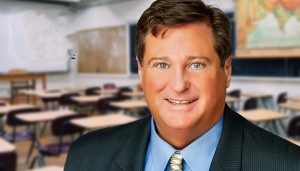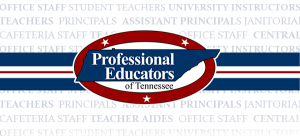“Drain the swamp” is a phrase coined by President Trump, signifying the removal of corruption and special interests from government. Many conservatives oppose Penny Schwinn's nomination as Deputy Secretary of Education, believing that she embodies the interests they want to eliminate from the agency.
A brief review of Schwinn's controversial profile and record reveals a pattern of conflicts of interest and ethical issues. Sam Stockard of the Tennessee Lookout reports on a May 5 letter to Benjamin May from Schwinn. In the letter, she outlines her plans to avoid any real or perceived conflicts of interest by not participating in matters where she has a financial stake.
Stockard highlights: “Seeking a deputy secretary post in the Trump administration, former Tennessee Education Commissioner Penny Schwinn is promising to eliminate financial conflicts of interest to get the job, including minimizing ties to a Tennessee lobbying firm.” The lobbying firm in question is BHA Strategy, a company founded by Bill Lee’s former chief of staff, Blake Harris; Lee’s former communications director, Laine Arnold; and Brent Easley, the governor’s former legislative director.
The response from the political and education establishment has been utterly dismissive of conflict-of-interest issues. Rick Hess, from the American Enterprise Institute (AEI), a conservative think tank, does not see a conflict of interest as a significant issue. Hess told Education Week: “I’d be really surprised if, for the No. 2 role in the Department of Education, it suddenly was a big deal.”
Hess was likely unaware that on March 24, 2025, Schwinn disclosed on her Executive Branch Personnel Public Disclosure Report that she received $6,000 from the American Enterprise Institute on June 17, 2024. This was likely for a speaking engagement.
However, it is a serious problem if conservatives do not regard conflicts of interest as a significant issue. As Russell Kirk pointed out in The Politics of Prudence, a society in which men and women are morally adrift, ignorant of norms, and focused primarily on the gratification of their appetites will be a troubled society.
Addressing conflicts of interest is essential, as they occur when personal interests intersect with professional responsibilities. This overlap can undermine judgment, objectivity, and fairness, emphasizing the ethical implications of the matter.
When government policies advantage a select few at the expense of the majority, it raises significant concerns. This often leads to a diversion of resources, drives up costs, and leaves taxpayers footing the bill. Such practices divert resources from public services, weaken trust in our institutions, and diminish the voices of the majority, ultimately undermining the principles of democracy and the common good.
As Commissioner of Education, Penny Schwinn experienced a significant disconnect with the Tennessee General Assembly on both sides of the political aisle. John Ray Clemmons, Chairman of the Tennessee House Democratic Caucus, claimed her tenure compromised public school integrity, and current U.S. Representative Andy Ogles, a Republican, had also called for her removal as Commissioner of Education.
Penny Schwinn will be confirmed as the Deputy Secretary of Education. Those who benefit from her conflicts of interest will continue to profit. The cheerleaders will continue to push out one failed education program after another, chasing dollars, and the swamp will migrate from Washington, DC, to state capitals.
As Ronald Reagan reminded us, “Man is not free unless government is limited.” There is a clear cause-and-effect relationship here that is as neat and predictable as a law of physics: as government expands, liberty contracts. President Trump will not be able to drain the swamp until he stops appointing individuals who benefit from the swamp to positions in government.
Those in power greatly influence our lives. Conflicts of interest can have serious consequences, making it essential to address them. We must prioritize ethics, integrity, and accountability to build a stronger, more ethical American society.
##
JC Bowman is the executive director of Professional Educators of Tennessee.











